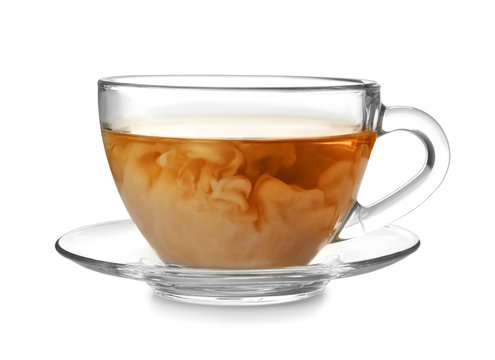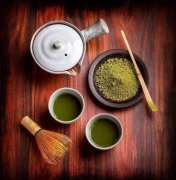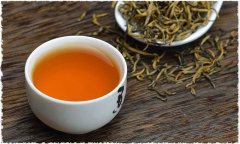The recipe and production process of all kinds of milk tea what are the advantages and disadvantages of drinking milk tea for a long time?
Tea suitable for adding milk
Because milk has greatly changed the characteristics of tea, you think the tea that tastes best without milk may be different from the tea with milk. Many tea tasters do not like to add milk to their tea, and people have slightly different views on which kind of tea tastes best with milk, but there are some clear patterns.
Usually, strong tea and black tea, such as those that are usually considered to be breakfast tea, are the best milk. These teas include Assam, Ceylon, some Kenyan and Yunnan teas, as well as some tea-based seasoning teas, such as Earl Grey. These teas tend to be rich in tannins; low tannin teas, such as Darjeeling Chu Chong tea or Golden Monkey Tea, usually do not match well with milk.
Most pundits agree with these suggestions. The Golden Moon Tea blog suggests that you can add milk to black tea if you like, especially not to green, oolong and white tea. Spruce points out that black tannin tea and rougher green tea (including gunpowder tea) are the best choices for adding milk, and it is recommended not to add milk to white tea, oolong tea and Pu'er tea.

How and when to add milk
There has been a lot of debate about when it is better to add milk to tea. If milk comes into contact with boiling or near-boiling water, it can cause protein denaturation, resulting in a solidifying effect. This may adversely affect the taste, appearance and taste of the drink, but because the taste is subjective, some people may actually prefer milk-condensed tea. Another problem with adding milk is that adding milk while the tea is still brewing lowers the brewing temperature. Since most black teas are brewed in boiling water, this may result in an unqualified cup.
The Guardian studied this and suggested making tea in a teapot, pouring it into a cup and then adding milk, which solved not only the problem of water temperature, but also the problem of milk condensation. Another solution is to use a basket tea maker or tea ball to soak the tea to a satisfactory level, and then add milk.

Will the addition of milk affect the health efficacy of tea?
As we all know, tea has many benefits to health. There has been some debate about whether milk interferes with these positive effects. The proteins in milk have bound to the antioxidants in tea, but this may only slow down rather than stop the absorption of these usually beneficial compounds.
Scientific research on this topic is inconclusive and has pointed out many complex interactions about which little is known. One study found that skim milk reduced the antioxidant capacity of tea more than whole milk or low-fat milk; the presence of fat seemed to mediate the effect of milk antioxidants to some extent. Milk combines with antioxidants, but a study on the actual absorption capacity of the human body found that milk had no effect on the absorption of antioxidants.
We have found no conclusive evidence that milk has a strong positive or negative effect on the health of tea. The main reasons to avoid adding milk to tea are taste, personal taste or diet.
Cream? Whole milk, low fat milk, or skim milk?
Milk contains many kinds of fat. Typical whole milk or "whole" milk contains about 3.5-4% milk fat. The dairy industry separates fat from this milk and produces a range of products, including halves (10-18%) and cream (defined differently in different countries, usually 15-40%). The use of high-cream cream is more common in cold climates.
There is a growing case for full-fat dairy products. Based on this overwhelming evidence, we do not recommend that people who are worried about health effects drink low-fat or skim milk. This suggestion is also supported by a study that found that skim milk significantly reduced the antioxidant capacity of tea compared with whole milk.
Important Notice :
前街咖啡 FrontStreet Coffee has moved to new addredd:
FrontStreet Coffee Address: 315,Donghua East Road,GuangZhou
Tel:020 38364473
- Prev

Which is the best top matcha powder? introduction to the grading system of Japanese Yuji matcha
Matcha. Even if you haven't tried, you may have heard of it. Or see someone happily drinking a frothy green drink in a local teahouse or coffee shop. Matcha has attracted a lot of attention in recent years, not just because of its caffeine content (which we will discuss later). If you are interested in matcha, here is some information to help you learn more about this ancient tea. If you
- Next

Yunnan black tea is not suitable for which people to drink? Can you drink Yunnan red ancient tree black tea? is it good for your health?
Yunnan black tea, often named Dianhong by its Chinese name, is sometimes called Yunnan black tea, which generally refers to black tea from Yunnan Province, China. The Yunnan with this name is Yunnan.
Related
- What is the difference between Indonesian Sumatra Mantinin coffee and gold Mantinin? How to distinguish between real and fake golden Mantelin coffee?
- What does bypass mean in coffee? Why can hand-brewed coffee and water make it better?
- Unexpected! Ruixing Telunsu lattes use a smoothie machine to foam milk?!
- % Arabia's first store in Henan opens into the village?! Netizen: Thought it was P's
- Does an authentic standard mocha coffee recipe use chocolate sauce or powder? Mocha Latte/Dirty Coffee/Salty Mocha Coffee Recipe Share!
- What is the difference between Vietnam egg coffee and Norway egg coffee? Hand-brewed single product coffee filter paper filter cloth filter flat solution!
- What is the difference between sun-cured and honey-treated coffee? What are the differences in the flavor characteristics of sun-honey coffee?
- How to make Italian latte! How much milk does a standard latte use/what should the ratio of coffee to milk be?
- How to make butter American/butter latte/butter Dirty coffee? Is hand-brewed coffee good with butter?
- Is Dirty the cold version of Australian White? What is the difference between dirty coffee/decent coffee and Australian white espresso?

